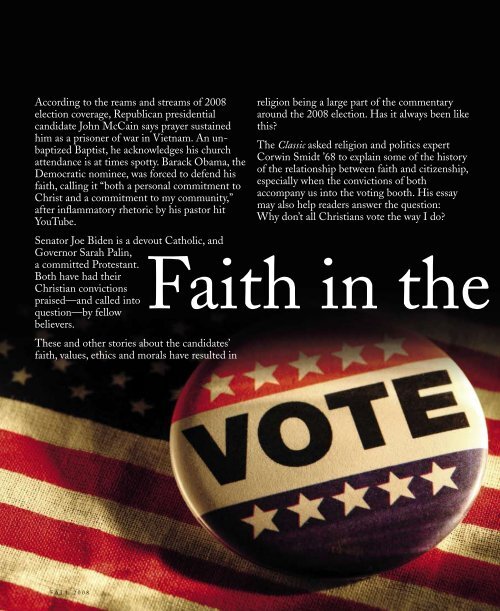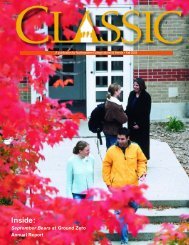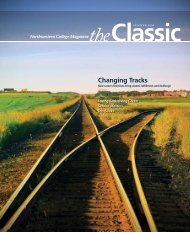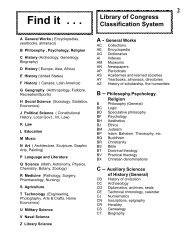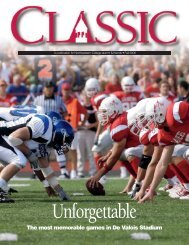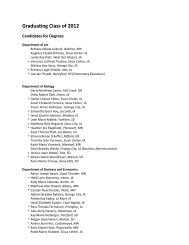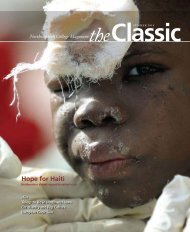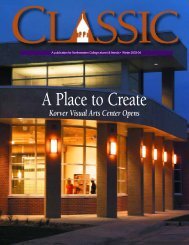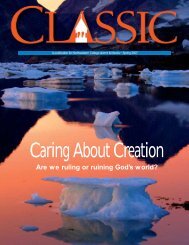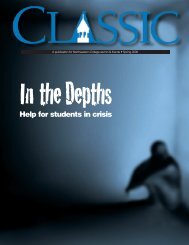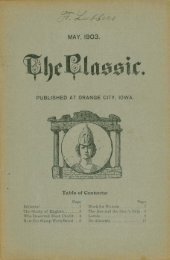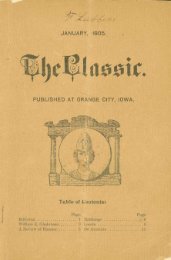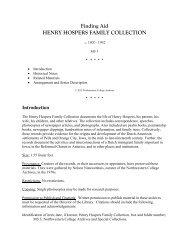fall 2008 - Northwestern College
fall 2008 - Northwestern College
fall 2008 - Northwestern College
You also want an ePaper? Increase the reach of your titles
YUMPU automatically turns print PDFs into web optimized ePapers that Google loves.
According to the reams and streams of <strong>2008</strong><br />
election coverage, Republican presidential<br />
candidate John McCain says prayer sustained<br />
him as a prisoner of war in Vietnam. An unbaptized<br />
Baptist, he acknowledges his church<br />
attendance is at times spotty. Barack Obama, the<br />
Democratic nominee, was forced to defend his<br />
faith, calling it “both a personal commitment to<br />
Christ and a commitment to my community,”<br />
after inflammatory rhetoric by his pastor hit<br />
YouTube.<br />
Senator Joe Biden is a devout Catholic, and<br />
Governor Sarah Palin,<br />
Faith in the<br />
a committed Protestant.<br />
Both have had their<br />
Christian convictions<br />
praised—and called into<br />
question—by fellow<br />
believers.<br />
These and other stories about the candidates’<br />
faith, values, ethics and morals have resulted in<br />
religion being a large part of the commentary<br />
around the <strong>2008</strong> election. Has it always been like<br />
this?<br />
The Classic asked religion and politics expert<br />
Corwin Smidt ’68 to explain some of the history<br />
of the relationship between faith and citizenship,<br />
especially when the convictions of both<br />
accompany us into the voting booth. His essay<br />
may also help readers answer the question:<br />
Why don’t all Christians vote the way I do?<br />
FALL <strong>2008</strong>


